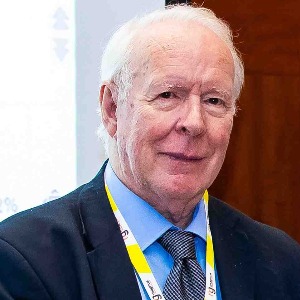Oral Epidemiology
Oral epidemiology is the branch of epidemiology specific to studying the dental aspects of population health. The goal of oral epidemiology is to gain knowledge into which populations are at risk of oral and dental diseases and inform research initiatives and public health interventions to improve oral health. Oral health is an important part of overall health, and many oral and dental diseases have serious systemic consequences, including diabetes, cardiovascular disease, mouth cancer, and preterm labor. Oral epidemiologists often use surveys to collect data on populations’ oral hygiene habits, self-reported oral health status, and perceptions of oral health. This data can be compared among different population groups and over time to identify patterns and trends in oral and dental health status. The findings from survey data can be used to identify high-risk subgroups in the population and are useful for informing public health policy for the purpose of improving oral health. Oral epidemiologists also conduct laboratory experiments on oral bacteria and genetics to identify risk factors for dental diseases. Many oral diseases are caused by different kinds of bacteria, and studies are conducted to assess the levels of these bacteria and their resistance to antibiotics. Other studies focus on identifying genes that lead to increased susceptibility for certain oral diseases. In addition, oral epidemiologists use large datasets such as insurance claims, electronic medical records, and national health surveys. These datasets can be used to assess trends in utilization of health services and to gain insight into disparities in dental care access among different population groups. Overall, oral epidemiology is an important component of dental science. The research conducted by oral epidemiologists helps to identify challenges and gaps in oral health knowledge and contributes to improved dental care.

David Geoffrey Gillam
Queen Mary University of London, United Kingdom
Christopher Turner
Spacemark Dental, United Kingdom




Title : Evaluating hygienist follow up for head and neck oncology patients in secondary care: Results from a two cycle audit
Peter Basta, Newcastle Dental Hospital, United Kingdom
Title : Atypical facial pain unravelled
Christopher Turner, Spacemark Dental, United Kingdom
Title : New treatment of temporomandibular disorder through muscle balance and muscle regeneration by activation of quiescent muscle stem cells( satellite cells) with mitochondrial dynamics
Ki Ji Lee, National Reserach Foundation & Busan Medical University, Korea, Republic of
Title : MRONJ and ORN: Referral or management in primary care? Navigating guidelines in the context of long waiting lists
Alisha Sagar, NHS England, United Kingdom
Title : Managing the unexpected: An Insight into supernumerary teeth
Bahar Gharooni Dowrani, Guy's and St Thomas' NHS Foundation Trust, United Kingdom
Title : Laxative prescribing for post operative head and neck cancer patients at Derriford Hospital
Pui Sze Kylie Li, Cardiff and Vale University Health Board, United Kingdom